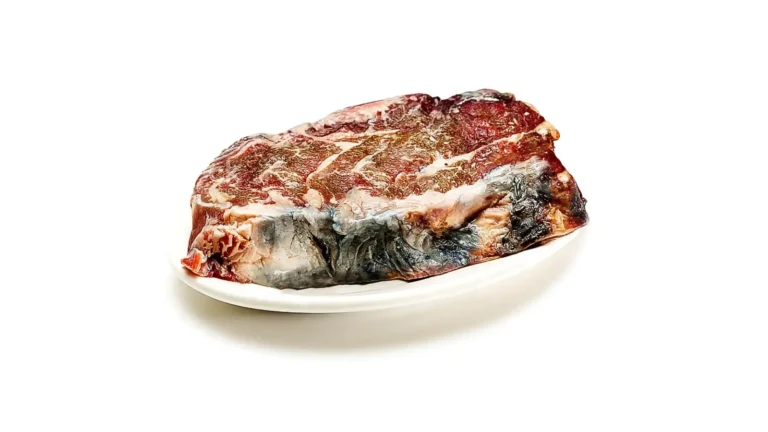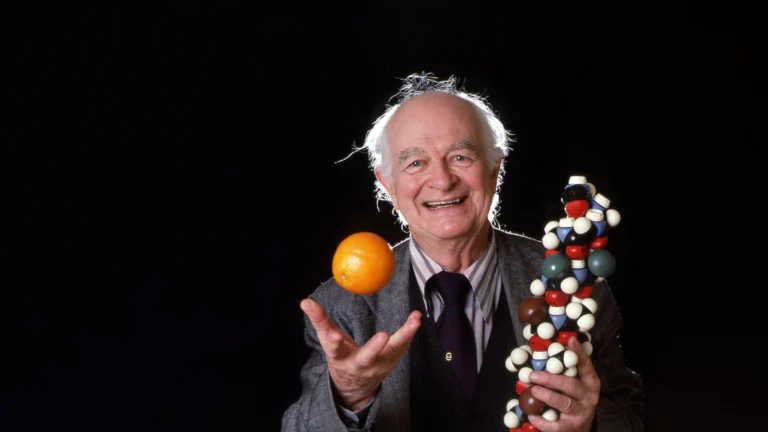Mediterranean diet- “Wonder” of olive oil
Marketed as a wonder of olive oil, the Mediterranean diet had nothing to do with any oil of any sort except in the measure that it can replace butter and lard.
Milos Pokimica
Written By: Milos Pokimica
Medically Reviewed by: Dr. Xiùying Wáng, M.D.
Updated June 9, 2023Good old healthy Mediterranean diet. Marketed as a wonder of olive oil that had nothing to do with oil of any sort whatsoever except in the measure that it can replace even worse choices like a regular saturated fat like butter and lard. That is precisely how even the father of the Mediterranean diet saw it (Keys, 1987). When you go to pubmed.gov and search for a Mediterranean diet, there are about 5000 results. Mediterranean diet is many diets in a lot of different countries. It can be Morocco or Greek or Spain or Italy or some other place.
However, when we talk about the Mediterranean diet what is implied is the diet on the island of Crete in the post World War 2 era. Also, what comes next is a big question: Why was heart disease rare in the Mediterranean? Meaning on the island of Crete after WW2.
In 1948 after the war and socioeconomic collapse, the government of Greece was concerned about malnutrition and the health status of its citizens. They decided to invite the Rockefeller Foundation with the goal of undertaking an epidemiological study on the island of Crete. In 1952 impressed by low rates of heart disease Ancel Keys, the same scientist that was in charge of the Minnesota Starvation Experiment, noted the connection after researching the data between fat and especially saturated fat, and heart disease. Although at that time he did not see cholesterol as the problem because it would mean the animal products are the guilty ones. The connection between dietary fat and heart disease was observed even earlier in the 1930s and was influential on Keys’ work, but data from Crete made him write a paper about it in 1953 and made public addresses. The famous Seven Country Study was to begin five years later in 1958 to investigate Keys’ concerns (www.sevencountriesstudy.com). By the 1960s it was a common belief that saturated fat contributes to heart disease. The Diet of people on the island of Crete was a catalyst for this research later on. In 1970 the Seven Country Study was presented for the first time. Now Keys lived to 100 himself and at the time was not much of the radical as cholesterol confusions would like you to believe. He recommended eating less fat, meaning fat in meat and fat in general like eggs (or at least yolks) and dairy products, and instead of eating more fish and chicken. He considered fruits and vegetables to be just complementary food, and he had cholesterol of around 200. That number is not healthy by a long shot, but he did live to 100. The problem was that he was a doctor from the same system as any other doctor. Arteriosclerosis does not usually happen in an age like cholesterol confusions would like us to believe because of all of the stressful blood flow.
Arteriosclerosis is a disease, not the aging process. We can go and look at arteries and measure the blood pressure of poor people in places like Crete. Keys did not see the real truth about what was real diet on Crete. He thought it was just fat and didn’t see the problem in animal protein. Animal protein correlation was overlooked even in the charts. He muddied the water by pointing just at fat.
However, even that was not good enough. Even that was over the top. In 1966, George Campbell and Thomas L. Cleave published “Diabetes, Coronary Thrombosis, and Saccharine Disease.” They argued that chronic Western diseases such as heart disease, peptic ulcers, diabetes, and obesity are produced by one thing: “Refined carbohydrate disease.” It was a never-ending story. It never stopped to this day. Everything is a lie that is confronted by the opposite lie. Artificially created diet wars and confusion. It was a good design strategy that didn’t change a thing in 70 years except for kipping regular people in disease-causing money making an evil loop of misery. Even in current times, it is the same old manipulation story. In 2001, for example, in the article in Science Magazine entitled “Nutrition: The Soft Science of Dietary Fat”, Gary Taubes wrote:
“It is still a debatable proposition whether the consumption of saturated fats above recommended levels by anyone who’s not already at high risk of heart disease will increase the likelihood of untimely death…or have hundreds of millions of dollars in trials managed to generate compelling evidence that healthy individuals can extend their lives by more than a few weeks, if that, by eating less fat.”
People 70 years later think that the Mediterranean diet is healthy because of olive oil. This is an excellent illustration of a half-truth. Italian restaurants market themselves as a healthy Mediterranean diet cuisine with spaghetti carbonara and alcohol. The death rate from heart disease in Crete at that time was more than 20 times, not 20 percent, 20 times less than in the US. We statistically see this data from places like rural China and Crete and Okinawa and on and on and see that these people’s diet is simple and similar to each other. How much stupidity do we have to have not to see the real story of what is happening? Scientists with a considerable level of education are not the stupid ones. They have six-figure annual income plus bonuses. They are the smart ones. We are not. Nutritional science is not secret deep underground military propulsion system laboratory research. There are no real debates in the field of nutrition, only purposely creating real confusion.
So what did they eat on the island of Crete in the World War 2 aftermath? The answer is the same. No meat, eggs, or dairy. Just poor people’s food like fruit and vegetables, grains, nuts, and legumes. Things that grow locally. In numbers, they ate more than 90% plant-based, and meat, fish, dairy, and egg products combined are about 7%. They did eat some of the olive oil because olives grow in Crete but that is not the olive oil diet. Or the wine diet. There is nothing healthy about wine except grapes. We would be better off just drinking raw grape juice. If we look at Greece today what is it that we think we would find? They have the number 1 score in Europe in child obesity. The Island of Crete included. As soon as the economy improves the meat, cheese, sugar, and alcohol come in a package. And smoking too. Greece has a rate of tobacco consumption above 40%. The Mediterranean diet was not a local-specific Mediterranean diet like Italian cuisine or Greek cuisine or such. It was a poverty diet without meat and eggs, and dairy, similar to diets in all poverty or war-stricken places, and industry does not like to mention this. Heart disease was a rarity in Greece. Was. Not anymore. And even in Crete at times of war, some rich people ate “normally” meaning eating meat every day instead of once in two weeks. Heart attacks were normal for them too, unlike the rest of the common people that were struck by poverty. No one today eats the real Mediterranean diet anymore. The pure Mediterranean diet of today that is predominantly plant-based is not a real whole food diet. It is dominated by white flour, the consumption of oil and salt, and alcohol. In Crete, they did not eat refined white pasta from the factory with a sauce full of extracted oil and bottles of wine. Alcohol is a known breast cancer risk factor even if we disregard inflammation and toxicity. That is not a health-promoting meal. Well, that is not a health-promoting meal if we do not compare it to the even worse standard American meal of today. So yes, the Mediterranean diet is healthier than the regular diet but not as healthy as a real natural human diet. Whole food plant-based diet.
The problem is that regular normal food is not tasty as refined full of salt and oil and sugar so hardly anyone sticks to it. From a young age, children are given all of these chemicals we consider to be food, so we are addicted to them in childhood and have no real baseline anymore for comparison to what real human food is. That is why poor people’s diet works. If we disregard cholesterol and toxins and saturated fats that come from animal products and if we analyze the individual components of diet in Crete, we see that actually, it was not grains that were protective against heart attack. Grains, were more neutral and because they were whole food with fiber they had no effect on obesity or diabetes. Among the individual components in the Mediterranean diet consumption of greens and nuts actually, had most of the effects on lowering cardiovascular disease risk. Vegetarians that eat nuts have a lower risk of cardiovascular disease instead of those who don’t, and there are now a number of studies on this topic also. Here is one (Guasch-Ferré et al., 2013) with the conclusion: “Increased frequency of nut consumption was associated with a significantly reduced risk of mortality in a Mediterranean population at high cardiovascular risk.”
Nuts have high-oil content but also high fiber content, so the oil is not immediately absorbed like fat from meat or refined oil and unlike meat or oil nuts are rich in antioxidants and other phytochemical substances. One more benefit of nuts is that when combining them with greens oil will increase the phytochemical absorption of fat-soluble chemicals that are in already healthy vegetables. We do not have to go low fat and avoid nut and seed consumption and predominantly eat starch. We should eat starch and nuts and all other food in a wide variety possible. So far science has not correlated high seed and nut consumption with any disease including obesity, except in people who have allergies. Just the opposite. They are beneficial in almost any condition. Brazil nuts are full of selenium, and walnuts are protective against cancer, lignans in flaxseed are one of the most protective chemicals against breast cancer and are also full of omega-three oils for brain function. Our ancestors had been eating raw nuts and seeds for a long time. They are our natural food as much as fruits or grains or young leaves or other green leafy vegetables.
The healthy diet is the one we had evolved and adapted to eating. That is it.
References:
- Keys A. (1987). Olive oil and coronary heart disease. Lancet (London, England), 1(8539), 983–984. https://doi.org/10.1016/s0140-6736(87)90337-0
- Guasch-Ferré, M., Bulló, M., Martínez-González, M. Á., Ros, E., Corella, D., Estruch, R., Fitó, M., Arós, F., Wärnberg, J., Fiol, M., Lapetra, J., Vinyoles, E., Lamuela-Raventós, R. M., Serra-Majem, L., Pintó, X., Ruiz-Gutiérrez, V., Basora, J., Salas-Salvadó, J., & PREDIMED study group (2013). Frequency of nut consumption and mortality risk in the PREDIMED nutrition intervention trial. BMC medicine, 11, 164. https://doi.org/10.1186/1741-7015-11-164
Related Posts
Do you have any questions about nutrition and health?
I would love to hear from you and answer them in my next post. I appreciate your input and opinion and I look forward to hearing from you soon. I also invite you to follow us on Facebook, Instagram, and Pinterest for more diet, nutrition, and health content. You can leave a comment there and connect with other health enthusiasts, share your tips and experiences, and get support and encouragement from our team and community.
I hope that this post was informative and enjoyable for you and that you are prepared to apply the insights you learned. If you found this post helpful, please share it with your friends and family who might also benefit from it. You never know who might need some guidance and support on their health journey.
– You Might Also Like –

Learn About Nutrition
Milos Pokimica is a doctor of natural medicine, clinical nutritionist, medical health and nutrition writer, and nutritional science advisor. Author of the book series Go Vegan? Review of Science, he also operates the natural health website GoVeganWay.com
Medical Disclaimer
GoVeganWay.com brings you reviews of the latest nutrition and health-related research. The information provided represents the personal opinion of the author and is not intended nor implied to be a substitute for professional medical advice, diagnosis, or treatment. The information provided is for informational purposes only and is not intended to serve as a substitute for the consultation, diagnosis, and/or medical treatment of a qualified physician or healthcare provider.NEVER DISREGARD PROFESSIONAL MEDICAL ADVICE OR DELAY SEEKING MEDICAL TREATMENT BECAUSE OF SOMETHING YOU HAVE READ ON OR ACCESSED THROUGH GoVeganWay.com
NEVER APPLY ANY LIFESTYLE CHANGES OR ANY CHANGES AT ALL AS A CONSEQUENCE OF SOMETHING YOU HAVE READ IN GoVeganWay.com BEFORE CONSULTING LICENCED MEDICAL PRACTITIONER.
In the event of a medical emergency, call a doctor or 911 immediately. GoVeganWay.com does not recommend or endorse any specific groups, organizations, tests, physicians, products, procedures, opinions, or other information that may be mentioned inside.
Editor Picks –
Milos Pokimica is a health and nutrition writer and nutritional science advisor. Author of the book series Go Vegan? Review of Science, he also operates the natural health website GoVeganWay.com
Latest Articles –
Top Health News — ScienceDaily
- The overlooked nutrition risk of Ozempic and Wegovyon February 4, 2026
Popular weight-loss drugs like Ozempic and Wegovy can dramatically curb appetite, but experts warn many users are flying blind when it comes to nutrition. New research suggests people taking these medications may not be getting enough guidance on protein, vitamins, and overall diet quality, increasing the risk of muscle loss and nutrient deficiencies.
- A 25-year study found an unexpected link between cheese and dementiaon February 4, 2026
A massive Swedish study tracking nearly 28,000 people for 25 years found an unexpected link between full-fat dairy and brain health. Among adults without a genetic risk for Alzheimer’s, eating more full-fat cheese was associated with a noticeably lower risk of developing the disease, while higher cream intake was tied to reduced dementia risk overall. The findings challenge decades of low-fat dietary advice but come with important caveats.
- MIT’s new brain tool could finally explain consciousnesson February 4, 2026
Scientists still don’t know how the brain turns physical activity into thoughts, feelings, and awareness—but a powerful new tool may help crack the mystery. Researchers at MIT are exploring transcranial focused ultrasound, a noninvasive technology that can precisely stimulate deep regions of the brain that were previously off-limits. In a new “roadmap” paper, they explain how this method could finally let scientists test cause-and-effect in consciousness research, not just observe […]
- Why heart disease risk in type 2 diabetes looks different for men and womenon February 4, 2026
Scientists are digging into why heart disease risk in type 2 diabetes differs between men and women—and sex hormones may be part of the story. In a large Johns Hopkins study, men with higher testosterone had lower heart disease risk, while rising estradiol levels were linked to higher risk. These hormone effects were not seen in women. The results point toward more personalized approaches to heart disease prevention in diabetes.
- Sound machines might be making your sleep worseon February 4, 2026
Sound machines may not be the sleep saviors many believe. Researchers found that pink noise significantly reduced REM sleep, while simple earplugs did a better job protecting deep, restorative sleep from traffic noise. When pink noise was combined with outside noise, sleep quality dropped even further. The results suggest that popular “sleep sounds” could be doing more harm than good—particularly for kids.
- This unexpected plant discovery could change how drugs are madeon February 3, 2026
Plants make chemical weapons to protect themselves, and many of these compounds have become vital to human medicine. Researchers found that one powerful plant chemical is produced using a gene that looks surprisingly bacterial. This suggests plants reuse microbial tools to invent new chemistry. The insight could help scientists discover new drugs and produce them more sustainably.
- A hidden cellular process may drive aging and diseaseon February 3, 2026
As we age, our cells don’t just wear down—they reorganize. Researchers found that cells actively remodel a key structure called the endoplasmic reticulum, reducing protein-producing regions while preserving fat-related ones. This process, driven by ER-phagy, is tied to lifespan and healthy aging. Because these changes happen early, they could help trigger later disease—or offer a chance to stop it.
PubMed, #vegan-diet –
- Diet type and the oral microbiomeon February 2, 2026
CONCLUSION: The diet-oral microbiome-systemic inflammation axis is bidirectional and clinically relevant. Understanding both direct ecological regulation and indirect metabolic effects is essential to support precision nutrition strategies aimed at maintaining oral microbial balance and systemic inflammatory risk mitigation.
- Consensus document on healthy lifestyleson January 22, 2026
Proteins are a group of macronutrients that are vital to our lives, as they perform various functions, including structural, defensive and catalytic. An intake of 1.0-1.2 g/kg/body weight per day would be sufficient to meet our needs. Carbohydrate requirements constitute 50 % of the total caloric value and should be obtained mainly in the form of complex carbohydrates. In addition, a daily intake of both soluble and insoluble fiber is necessary. Regular consumption of extra virgin olive oil […]
- Vitamin B12 and D status in long-term vegetarians: Impact of diet duration and subtypes in Beijing, Chinaon January 21, 2026
CONCLUSIONS: This study reveals a dual challenge among Beijing long-term vegetarians: vitamin B12 deficiency was strongly associated with the degree of exclusion of animal products from the diet (veganism), while vitamin D deficiency was highly prevalent and worsened with longer diet duration. The near-universal vitamin D deficiency observed in this study suggests that, in the Beijing context, the risk may extend beyond dietary choice, potentially reflecting regional environmental factors;…
- Nutritional evaluation of duty meals provided to riot police forces in Germanyon January 13, 2026
Background: The primary role of the German riot police is maintaining internal security. Due to challenging working conditions, riot police forces face an elevated risk of various diseases. During duty, forces are provided with meals. A balanced diet can reduce the risk of some of these diseases and contribute to health-promoting working conditions. Aim: First evaluation of the nutritional quality of duty meals in Germany based on German Nutrition Society recommendations (DGE). Methods: In…
- Iodineon January 1, 2006
Iodine is an essential trace nutrient for all infants that is a normal component of breastmilk. Infant requirements are estimated to be 15 mcg/kg daily in full-term infants and 30 mcg/kg daily in preterm infants.[1] Breastmilk iodine concentration correlates well with maternal urinary iodine concentration and may be a useful index of iodine sufficiency in infants under 2 years of age, but there is no clear agreement on a value that indicates iodine sufficiency, and may not correlate with […]
Random Posts –
Featured Posts –
Latest from PubMed, #plant-based diet –
- From paddy soil to dining table: biological biofortification of rice with zincby Lei Huang on February 4, 2026
One-third of paddy soils are globally deficient in zinc (Zn) and 40% of Zn loss in the procession from brown rice to polished rice, which results in the global issue of hidden hunger, e.g., the micronutrient deficiencies in the rice-based population of developing countries. In the recent decades, biofortification of cereal food crops with Zn has emerged as a promising solution. Herein, we comprehensively reviewed the entire process of Zn in paddy soil to human diet, including the regulatory…
- Molecular Characterization of Tobacco Necrosis Virus A Variants Identified in Sugarbeet Rootsby Alyssa Flobinus on February 3, 2026
Sugarbeet provides an important source of sucrose; a stable, environmentally safe, and low-cost staple in the human diet. Viral diseases arising in sugarbeet ultimately impact sugar content, which translates to financial losses for growers. To manage diseases and prevent such losses from occurring, it is essential to characterize viruses responsible for disease. Recently, our laboratory identified a tobacco necrosis virus A variant named Beta vulgaris alphanecrovirus 1 (BvANV-1) in sugarbeet…
- Nutrition in early life interacts with genetic risk to influence preadult behaviour in the Raine Studyby Lars Meinertz Byg on February 3, 2026
CONCLUSIONS: Nutrition in early life and psychiatric genetic risk may interact to determine lasting child behaviour. Contrary to our hypothesis, we find dietary benefits in individuals with lower ADHD PGS, necessitating replication. We also highlight the possibility of including genetics in early nutrition intervention trials for causal inference.
- Effect of the gut microbiota on insect reproduction: mechanisms and biotechnological prospectsby Dilawar Abbas on February 2, 2026
The insect gut microbiota functions as a multifunctional symbiotic system that plays a central role in host reproduction. Through the production of bioactive metabolites, gut microbes interact with host hormonal pathways, immune signaling, and molecular regulatory networks, thereby shaping reproductive physiology and fitness. This review summarizes recent advances in understanding how gut microbiota regulate insect reproduction. Accumulating evidence demonstrates that microbial metabolites…
- Rationale and design of a parallel randomised trial of a plant-based intensive lifestyle intervention for diabetes remission: The REmission of diabetes using a PlAnt-based weight loss InteRvention…by Brighid McKay on February 2, 2026
CONCLUSIONS: This trial will provide high-quality clinical evidence on the use of plant-based ILIs to address the epidemics of obesity and diabetes to inform public health policies and programs in Canada and beyond.
- Diet type and the oral microbiomeby Daniel Betancur on February 2, 2026
CONCLUSION: The diet-oral microbiome-systemic inflammation axis is bidirectional and clinically relevant. Understanding both direct ecological regulation and indirect metabolic effects is essential to support precision nutrition strategies aimed at maintaining oral microbial balance and systemic inflammatory risk mitigation.

















